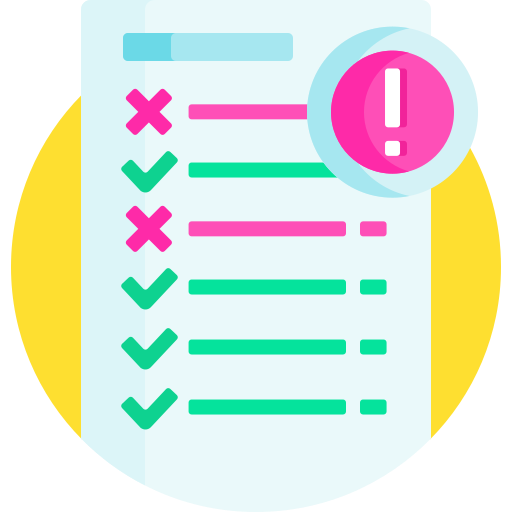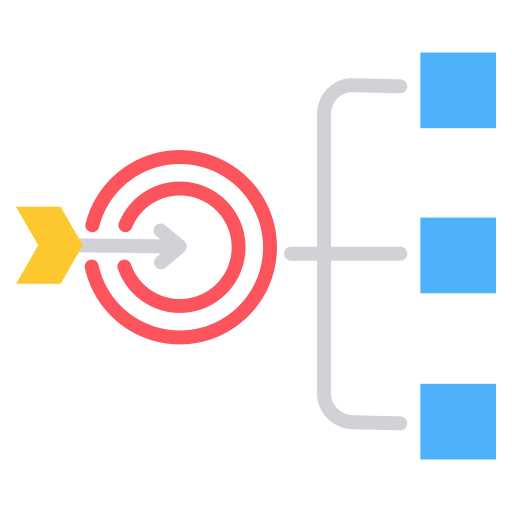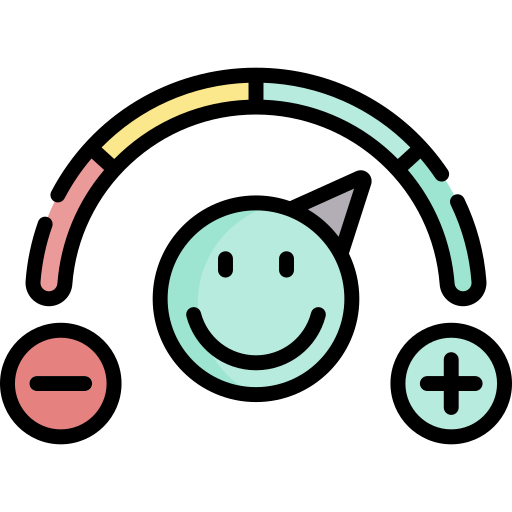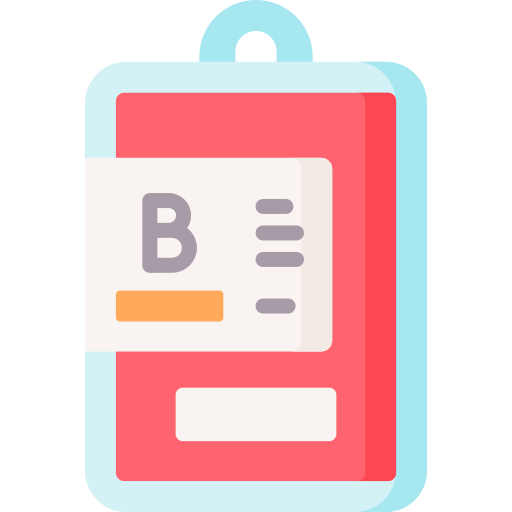It's a new day! You wake up with a burst of motivation: "I'll apply to the 8 jobs I saved, send 5 follow-up emails, and fix my entire resume."
But by midnight, just like yesterday (and the day before that), you've only saved 7 more jobs and changed your resume font.
You start thinking, "If motivation won't pull me through my job search, what will?"

Here's the truth — a job search can be a long and rocky road. While motivation gives you short spurts of speed, self-discipline is the fuel that keeps you moving steadily on this road.
Improve your self-discipline and streamline your job search like never before.
Why is Self-Discipline Important for Job Search?
Self-discipline is the ability to make yourself do things when you should, even if you do not want to do them.
— Cambridge Dictionary

Self-discipline supports every part of life and your job search is no exception. It gives your efforts structure, so you keep moving forward, even when motivation dips. There's no substitute for it because:
 1. Self-discipline keeps your job search consistent.
1. Self-discipline keeps your job search consistent.
A routine helps you stay focused and keeps your job search on track. Showing up every day, even for a short time, builds steady progress and prevents long stretches of inactivity.
Self-discipline example: Applying to one job every morning keeps you consistent instead of doing everything in one exhausting day.
 2. Self-discipline gets the important stuff done.
2. Self-discipline gets the important stuff done.
You can easily skip sending follow-ups or tailoring your resume when motivation dips. But self-discipline keeps you accountable and pushes you to complete the steps that count.
Self-discipline example: Setting aside 30 minutes daily to tailor your bullet points for each role strengthens your application, instead of relying on a last-minute AI generated resume.
 3. Self-discipline helps reduce stress and anxiety.
3. Self-discipline helps reduce stress and anxiety.
Job searching involves endless research, emails, networking, and repetitive tasks. It can all get chaotic without a structure. Self-discipline helps you stay organized and gives you a sense of control throughout the process.
Self-discipline example: Tracking your applications in a simple Excel sheet or Google Doc prevents you from applying to the same jobs.
 4. Self-discipline turns big goals into small, doable steps.
4. Self-discipline turns big goals into small, doable steps.
Large goals like "get a job" can feel overwhelming, but discipline breaks them into small, practical actions you can complete even on low-energy days.
Self-discipline example: Writing one cover letter template for similar roles saves time and keeps you more productive, instead of struggling to create two unrelated cover letters from scratch.
 5. Self-discipline makes you more confident.
5. Self-discipline makes you more confident.
It helps you stay productive and manage your time better through small daily actions and wins. You start overcoming procrastination, which boosts your self-esteem and helps you feel more positive about your job search.
Self-discipline example: Practicing interview questions for 10 minutes each evening helps you feel ready instead of waiting until the interview to start preparing.
How to Improve Your Self-Discipline?
Self-discipline isn't something you're born with — it's something you build. And when your goals are clear, staying disciplined becomes easier because you know where to focus your energy. Follow these steps to help you build stronger self-discipline during your job search.
 1. Start with a simple daily job search routine.
1. Start with a simple daily job search routine.
Choose a fixed time each day to work on your job search tasks. A simple routine keeps things manageable and helps you stay consistent. Aim for short, focused sessions instead of long, overwhelming ones to make steady progress.
Here’s what your routine could look like:
Spend 20 minutes every morning after breakfast applying to one job that matches your career goal.
Spend 15 minutes after your coffee break to update one part of your resume — your professional summary or skills section.
Spend 20 minutes after lunch to grow your network — send one LinkedIn connection request with a short intro message.
Spend 20 minutes in the evening to prepare for one interview question — write your answer and rehearse it once.
 2. Break tasks into small, practical actions.
2. Break tasks into small, practical actions.
Big job search tasks feel much easier when you break them into smaller steps. Small wins keep you disciplined, especially on days when motivation is low. You build momentum when you focus on one doable action at a time.
Practice this daily by breaking down one job application into simple steps:
10 minutes to read the job description and highlight keywords.
15 minutes to tailor three bullet points in your resume.
15 minutes to update the introductory section of your cover letter.
 3. Remove distractions during job search time.
3. Remove distractions during job search time.
Discipline requires focus, not force. Set up a dedicated workspace for yourself—somewhere clean, calm, and free from interruptions. When your environment is simple, it becomes easier to stay focused and finish your tasks efficiently.
Here’s how you can stay distraction-free:
Put your phone on "Do Not Disturb" for 25 minutes while you work on a job search task.
Use a separate browser window for your job-related research.
Keep only what you need in your workspace — your laptop, notebook, and water bottle.
 4. Manage your time with simple scheduling techniques.
4. Manage your time with simple scheduling techniques.
Time management helps you structure your day so you work without rushing. Identify and prioritize the most important tasks for each day. When you assign clear time blocks to your tasks, you use your energy wisely and avoid procrastinating. This builds discipline naturally over time.
Here’s how you can manage your time better:
Plan your job search tasks the night before — write down two things you'll do the next morning.
Use the Pomodoro Technique— 25 minutes of focused work + 5 minute break.
Break skill-building into small sessions.
15 minutes to watch a tutorial on PowerPoint morph transitions.
20 minutes to create a 4-slide presentation using the morph effect.
 5. Track your progress.
5. Track your progress.
Tracking your progress daily keeps you disciplined, organized, and aware of what's working. A simple system keeps everything in one place and helps you stay on top of your work.
Here’s how you can track your progress:
Use a Google or Excel sheet to record jobs you've applied to, dates, follow-ups, and interview stages.
Use Google Docs to save your resume versions, cover letters, and interview answers.
Use your phone's Notes app to make checklists and log completed tasks for the day.
Choose the Best Routine
You're trying to stay consistent with your job search. Which daily routine will help you practice self-discipline more effectively?

Routine A
8:30 AM: Check job postings over breakfast and shortlist promising roles.
11:00 AM: Apply to 1-2 roles if the morning tasks are complete.
4:00 PM: Edit a few parts of your resume.
7:00 PM: Watch a few interview tips on YouTube after dinner.
End of day: Save additional job openings to review the next day.

Routine B
9:30–9:50 AM: Apply to one job that matches your goals.
11:30–11:50 AM: Update one section of your resume or cover letter.
3:00–3:20 PM: Write and practice one interview answer.
6:00-6:25 PM: Watch one tutorial on a skill you want to learn.
End of day: Record what you complete in your tracker.
Quiz
Which daily routine will help you practice self-discipline more effectively?
Some More Tips

1. Use the "5-minute rule".
Discipline doesn't always mean feeling happy about your work. Surprisingly, a 5-minute start sets things in motion, and you often end up doing more than you planned.
Self-discipline example: You decide, "I'll watch one 5-minute tutorial on Excel formulas." 5 minutes later, you feel curious to learn more and end up practicing two formulas on your own.
2. Reward yourself for small efforts.
Celebrating small attempts boosts discipline over time.
Self-discipline example: Enjoy a guilt-free break after completing your daily tasks — take a short walk or watch an episode of your favorite show. And when you stick to your routine for a whole week, celebrate with something special, like a movie night or a relaxing outing.
3. Create ready-to-use templates.
Discipline becomes easier when you make basic preparations in the beginning.
Self-discipline example: Create basic templates for your resume, cover letter, and follow-up email to tailor your applications quickly.
What Will You Do?
You've set a goal to spend 25 minutes each morning on your job search. Today, you feel tired and less motivated, but you sit down at your desk anyway.

Which action reflects good self-discipline for your job search today?
A. Spend 1 hour rewriting your entire resume for a role you just found.
B. Skip job search today and start fresh tomorrow when you feel more motivated.
C. Stick to your routine and update the summary in your resume, then apply to one saved job.
D. Spend the time researching new skills instead of doing the tasks you planned.
Quiz
Which action reflects good self-discipline for your job search today?
Take Action

Remember, your job search may feel like a tricky path, but with self-discipline, you’re equipped to travel down it with confidence.
Your feedback matters to us.
This Byte helped me better understand the topic.
